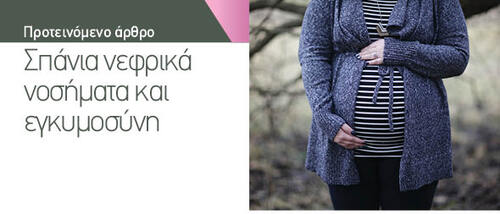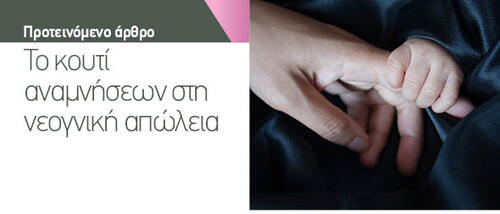Current Issue
Issues
Aim & Scope
Open Access
Indexing
Why publish with us
Contact
Editorial Board
Manuscript Types
Manuscript Formatting
How to submit
For readers
For librarians
Authorship & COI
Principles of Transparency Checklist
Publication Ethics and Publication Malpractice Statement
CrossMark
Data Policies
Principles of Transparency Checklist
Peer review process
All journal content is clearly marked as to whether peer-reviewed or not. Final article PDFs contain a description of the peer-review process (internal or external) and provenance (commissioned or non commissioned) for that article. Peer review is single-blind within the journal. Every original article is peer-reviewed by a minimum of two external experts and one member of the editorial board. In all cases, the manuscript is also reviewed by the Editor-in-Chief. Letters to the Editor and Editorials are peer-reviewed internally. All journal content is clearly marked as to whether peer-reviewed or not (internally vs. externally peer-reviewed). All articles have a specific provenance and peer review tab (commissioned vs. non commissioned).
Authors may suggest external reviewers that are qualified to peer review the manuscript, provided that they have not collaborated closely in the near past and that they are not from the same institution. Authors may also note peer reviewers who they would not prefer to review this paper. While the authors' suggestions are taken into account, the Editorial Office reserves the right to handle single-blind peer review at its discretion. Any manuscripts received for review will be treated as confidential documents.
External peer reviewers are requested to report on the ethical aspects of the manuscript they are allocated to review and are requested to report also on the novelty, the impact, the statistical analysis, references and potential conflicts of interest. A specific peer review form is provided with closed and open based questions so as to rate the manuscript and provide comments.
Reviewers are also requested to consider the following, should they proceed with a review for the journal:
According to COPE, reviewers are strictly suggested not to contact the authors directly without the permission of the journal. In case of active collaboration with the authors of a manuscript, reviewers are suggested to not proceed with a review as this raises concerns on potential conflict of interest and journal credibility may be at stake. Discrimination based on non-scientific criteria is clearly unacceptable (e.g. gender or nationality).
Governing Body
Our journal has an editorial board whose members are recognized leading experts in the area of health-related to respiratory medicine, at a regional and international level. The full names and affiliations of the journal's editors are provided from the Editorial Board page. The editorial board is the final governing body of the journal.
Editorial team/contact information
We provide the full names and affiliations of the journal's editors as well as full address and contact information for the editorial office, the secretariat of the Hellenic Thoracic Society and the publisher, European Publishing.
Author fees
ELEFTHO does not claim any financial or other benefit from the authors of an article for the submission, publication, or modification of the articles according to the instructions of the judges, as well as for the publication of their article in an issue of the magazine.
Accordingly, it does not claim any financial or other benefit from the authors or readers of the magazine, so that they can read or even download any article.
Copyright
From 2022 onwards, authors who submit their work to ELEFTHO retain the copyright of their work without restrictions.
All articles published on ELEFTHO are available under the terms of the Creative Commons Attribution-NonCommercial 4.0 International License (CC-BY NC 4.0).
Process for identification of and dealing with allegations of research misconduct
Both the publishers and the Editors of the journal take affirmative action to identify and prevent the publication of papers where research misconduct has occurred, including plagiarism, citation manipulation, and data falsification/fabrication, among others. All authors are requested to complete and upload ICMJE conflict of interest forms. All manuscripts undergo Ithenticate plagiarism detection after each round of peer review. In the event that the journal's publisher or editors are made aware of any allegation of research misconduct relating to a published article in their journal - COPE's guidelines will be followed when dealing with allegations.
Ownership and management
The journal is operated and managed by European Publishing, in close collaboration with the Hellenic Thoracic Society. All content is published under Creative Commons licenses, which means that authors retain ownership of the content of their manuscript.
Web site
Our journal's website has been developed with care so as to ensure high ethical and professional standards. Constant updating is performed to enhance website utility, ease navigation and maintain the information available as the most recent.
The Name of journal
The Journal name, ELEFTHO is unique and can not be confused with any of the other journals in the field. It has been published continuously since 1957 under the name ELEFTHO (previously in Greek as "ΕΛΕΥΘΩ").
Conflicts of interest
ELEFTHO We have clear policies on handling potential conflicts of interest of editors, authors, and reviewers - all are requested to either complete ICMJE forms or declare no conflict of interest. The "Authorship & COI" Tab provides further information.
Access
ELEFTHO is freely available to readers with no subscription or pay per view fees. The number of direct downloads for each article are noted next to the article's abstract.
Revenue sources
Development of the journal has been partially funded through the Smart Specialisation Strategy of Crete, (S3) an innovation policy concept to support regional prioritisation in innovative sectors, fields or technologies. The European Commission introduced the S3 concept in the EU Cohesion Policy 2014-2020 as an ‘ex-ante conditionality’ for European regions to obtain funding for research and innovation from the European Regional Development Fund.
Advertising
Our journal accepts selected advertisements. The aim of this policy is to ensure that the content of advertising in the journal serves the best interests of the readers.
1. Advertisements must be legal, decent and accurate and must comply with the relevant laws and regulations.
2. Readers should immediately be able to distinguish between advertising and editorial content.
3. The journal accepts advertising for products and services that are of interest to users in their personal, as well as professional lives.
4. The journal does not allow advertising to influence editorial decisions.
5. Advertising is subject to strict editorial oversight. Advertising may be refused if it is judged by editors to be in perceived or potential breach of any of the above points.
Publishing schedule
The publishing schedule for our journal is quarterly, however, manuscripts are published online first, until they are assigned in an issue.
Archiving
From 2022 onwards, to ensure digital preservation for the future, the electronic versions of ELEFTHO are archived in Portico. Portico is a third-party preservation service supported by both libraries and publishers to ensure that scholarly content published in electronic form will remain accessible for the long term.
Direct marketing
ELEFTHO does not participate in the invitation of articles via email and does not send emails to potential authors to attract submissions. We believe that this practice of "spamming" is unprofessional. For us, the best promotion of a magazine is through maintaining high standards, quality manuscripts and strong peer review. In the case of highly distinguished researchers in the field, the journal sends personal invitations for commissioned manuscripts or hosted editorial articles. In this case, the manuscript / syntax will be marked as «Assigned» in the footnote of both the pdf and the electronic format.
All journal content is clearly marked as to whether peer-reviewed or not. Final article PDFs contain a description of the peer-review process (internal or external) and provenance (commissioned or non commissioned) for that article. Peer review is single-blind within the journal. Every original article is peer-reviewed by a minimum of two external experts and one member of the editorial board. In all cases, the manuscript is also reviewed by the Editor-in-Chief. Letters to the Editor and Editorials are peer-reviewed internally. All journal content is clearly marked as to whether peer-reviewed or not (internally vs. externally peer-reviewed). All articles have a specific provenance and peer review tab (commissioned vs. non commissioned).
Authors may suggest external reviewers that are qualified to peer review the manuscript, provided that they have not collaborated closely in the near past and that they are not from the same institution. Authors may also note peer reviewers who they would not prefer to review this paper. While the authors' suggestions are taken into account, the Editorial Office reserves the right to handle single-blind peer review at its discretion. Any manuscripts received for review will be treated as confidential documents.
External peer reviewers are requested to report on the ethical aspects of the manuscript they are allocated to review and are requested to report also on the novelty, the impact, the statistical analysis, references and potential conflicts of interest. A specific peer review form is provided with closed and open based questions so as to rate the manuscript and provide comments.
Reviewers are also requested to consider the following, should they proceed with a review for the journal:
Governing Body
Our journal has an editorial board whose members are recognized leading experts in the area of health-related to respiratory medicine, at a regional and international level. The full names and affiliations of the journal's editors are provided from the Editorial Board page. The editorial board is the final governing body of the journal.
Editorial team/contact information
We provide the full names and affiliations of the journal's editors as well as full address and contact information for the editorial office, the secretariat of the Hellenic Thoracic Society and the publisher, European Publishing.
Author fees
ELEFTHO does not claim any financial or other benefit from the authors of an article for the submission, publication, or modification of the articles according to the instructions of the judges, as well as for the publication of their article in an issue of the magazine.
Accordingly, it does not claim any financial or other benefit from the authors or readers of the magazine, so that they can read or even download any article.
Copyright
From 2022 onwards, authors who submit their work to ELEFTHO retain the copyright of their work without restrictions.
All articles published on ELEFTHO are available under the terms of the Creative Commons Attribution-NonCommercial 4.0 International License (CC-BY NC 4.0).
Process for identification of and dealing with allegations of research misconduct
Both the publishers and the Editors of the journal take affirmative action to identify and prevent the publication of papers where research misconduct has occurred, including plagiarism, citation manipulation, and data falsification/fabrication, among others. All authors are requested to complete and upload ICMJE conflict of interest forms. All manuscripts undergo Ithenticate plagiarism detection after each round of peer review. In the event that the journal's publisher or editors are made aware of any allegation of research misconduct relating to a published article in their journal - COPE's guidelines will be followed when dealing with allegations.
Ownership and management
The journal is operated and managed by European Publishing, in close collaboration with the Hellenic Thoracic Society. All content is published under Creative Commons licenses, which means that authors retain ownership of the content of their manuscript.
Web site
Our journal's website has been developed with care so as to ensure high ethical and professional standards. Constant updating is performed to enhance website utility, ease navigation and maintain the information available as the most recent.
The Name of journal
The Journal name, ELEFTHO is unique and can not be confused with any of the other journals in the field. It has been published continuously since 1957 under the name ELEFTHO (previously in Greek as "ΕΛΕΥΘΩ").
Conflicts of interest
ELEFTHO We have clear policies on handling potential conflicts of interest of editors, authors, and reviewers - all are requested to either complete ICMJE forms or declare no conflict of interest. The "Authorship & COI" Tab provides further information.
Access
ELEFTHO is freely available to readers with no subscription or pay per view fees. The number of direct downloads for each article are noted next to the article's abstract.
Revenue sources
Development of the journal has been partially funded through the Smart Specialisation Strategy of Crete, (S3) an innovation policy concept to support regional prioritisation in innovative sectors, fields or technologies. The European Commission introduced the S3 concept in the EU Cohesion Policy 2014-2020 as an ‘ex-ante conditionality’ for European regions to obtain funding for research and innovation from the European Regional Development Fund.
Advertising
Our journal accepts selected advertisements. The aim of this policy is to ensure that the content of advertising in the journal serves the best interests of the readers.
1. Advertisements must be legal, decent and accurate and must comply with the relevant laws and regulations.
2. Readers should immediately be able to distinguish between advertising and editorial content.
3. The journal accepts advertising for products and services that are of interest to users in their personal, as well as professional lives.
4. The journal does not allow advertising to influence editorial decisions.
5. Advertising is subject to strict editorial oversight. Advertising may be refused if it is judged by editors to be in perceived or potential breach of any of the above points.
Publishing schedule
The publishing schedule for our journal is quarterly, however, manuscripts are published online first, until they are assigned in an issue.
Archiving
From 2022 onwards, to ensure digital preservation for the future, the electronic versions of ELEFTHO are archived in Portico. Portico is a third-party preservation service supported by both libraries and publishers to ensure that scholarly content published in electronic form will remain accessible for the long term.
Direct marketing
ELEFTHO does not participate in the invitation of articles via email and does not send emails to potential authors to attract submissions. We believe that this practice of "spamming" is unprofessional. For us, the best promotion of a magazine is through maintaining high standards, quality manuscripts and strong peer review. In the case of highly distinguished researchers in the field, the journal sends personal invitations for commissioned manuscripts or hosted editorial articles. In this case, the manuscript / syntax will be marked as «Assigned» in the footnote of both the pdf and the electronic format.
We process personal data collected when visiting the website. The function of obtaining information about users and their behavior is carried out by voluntarily entered information in forms and saving cookies in end devices. Data, including cookies, are used to provide services, improve the user experience and to analyze the traffic in accordance with the Privacy policy. Data are also collected and processed by Google Analytics tool (more).
You can change cookies settings in your browser. Restricted use of cookies in the browser configuration may affect some functionalities of the website.
You can change cookies settings in your browser. Restricted use of cookies in the browser configuration may affect some functionalities of the website.






